Tota Roy Choudhury delves into career, 'Gulmohar' regrets
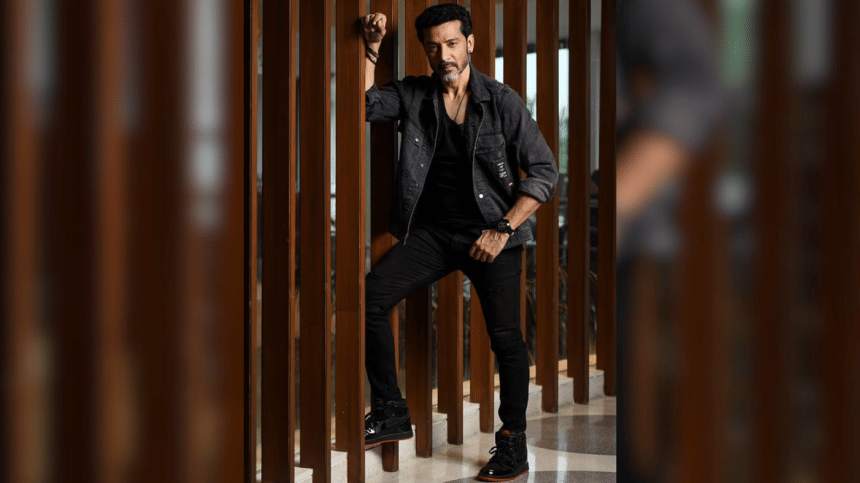
For an actor like Tota Roy Choudhury, expertise is not just about playing a role—it is about evolving with each performance, learning from great directors, and ensuring that every character he portrays leaves an impactful mark. His latest projects— "Chaalchitro: The Frame Fatale", "Nikhoj 2", "Feludar Goyendagiri: Bhuswargo Bhoyonkawr", and "Black Warrant"—reflect this philosophy. He candidly shares his thoughts on these ventures, the challenges of the Bangla film industry, and the need for seamless artistic collaboration between India and Bangladesh with The Daily Star.
When Tota Roy Choudhury first learned about "Chaalchitro", he was immediately drawn to it—primarily because of its director, Pratim D Gupta. The film was released in Indian theatres on December 20, 2024, and later started streaming on the OTT platform Hoichoi from February 21.
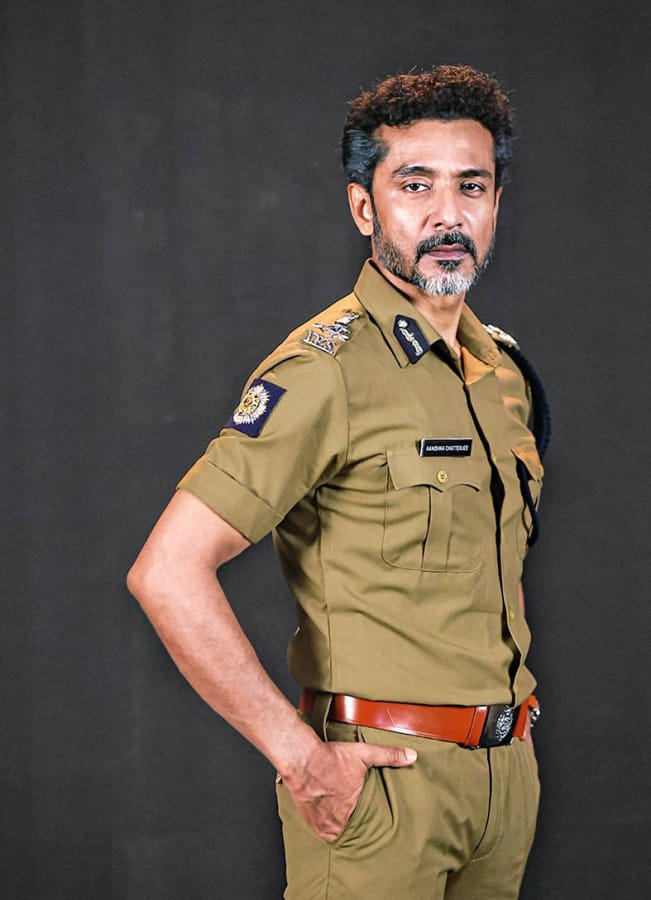
"Due to scheduling conflicts, we couldn't work together earlier, but this time, I was adamant that we would make it happen," he shares. "I asked him to send me the script, and once I started reading, I couldn't put it down. The way the story unfolds, the ensemble cast, and the depth of each character—it was a film I knew I had to be a part of."
One of the most striking aspects of the film for the actor was the casting of Bangladeshi actor Ziaul Faruq Apurba as the antagonist—a bold move, given that Apurba is best known for his romantic and clean-cut roles. "When I first heard he was playing the antagonist, I was genuinely surprised," Tota admits. "It was such a stark departure from what we're used to seeing from him. But the moment I watched him perform; I was blown away. He was marvellous."
The film's impact has been so profound that discussions for a sequel are already underway. "By the time we wrapped up, the idea of expanding the narrative came naturally," Tota shares. "The director suggested delving into the past lives of certain characters, particularly Bratya Basu's role, while also exploring what happens next. The audience's expectations are high, so we don't want to rush the process. Writing the script will begin soon, and since Shantanu, Anirban, and Apurba are all busy actors, coordinating schedules will be a challenge. But we will return—hopefully by the end of this year or early next year."

Tota was seen in a cameo role in the Netflix series "Black Warrant", released on January 10, 2025.
"For me, it's never about whether it's a lead role or a small one. What matters is who is directing it," he states, adding that this role made him happy to take it on. "The more I work with great directors, the more I learn. It enhances my experience and growth as an actor."
Vikramaditya Motwane, the director of "Sacred Games", "Lootera", and "Jubilee", approached him for a cameo while being aware of his image in the Tollywood industry.
"He asked me, 'Would you be interested in doing this role?' and in response, I told him, 'With you, sir, I would want to work.' Now, after the release of the series, when I am getting such positive feedback, I feel that my decision was right. If I had rejected this offer, considering myself a mainstream hero, it would have been my loss only!"
This perspective is something he has held onto throughout his career. "I believe we are in a time when people are valuing artistic development over the quantity of work. Rather than thinking of myself as a 'hero,' I prefer to think of myself as an actor who chooses roles that leave an impact," he explains.

Tota's portrayal in Karan Johar's "Rocky Aur Rani Kii Prem Kahaani" (2023) was a revelation—not just for audiences but also for the Bangla film industry. "For years, I was given similar roles in Bangla cinema. Films like 'Chokher Bali' were rare exceptions," he admits. "Every industry tends to typecast actors based on their proven abilities, and back when I started, there was only a little room for experimentation. Unfortunately, this wasn't just a problem in our industry—many actors across different film industries faced similar challenges."
However, working in Mumbai was an eye-opener. "There, I was auditioned for roles. They saw the character in me first and then cast me. This meant that I didn't carry the baggage of my past image, and I could simply focus on playing my role. That was a huge advantage," he explains. "After 'Rocky Aur Rani Kii Prem Kahaani', the Bangla industry started wondering—why didn't they try this with me earlier? I am grateful to Mumbai for giving me that opportunity."
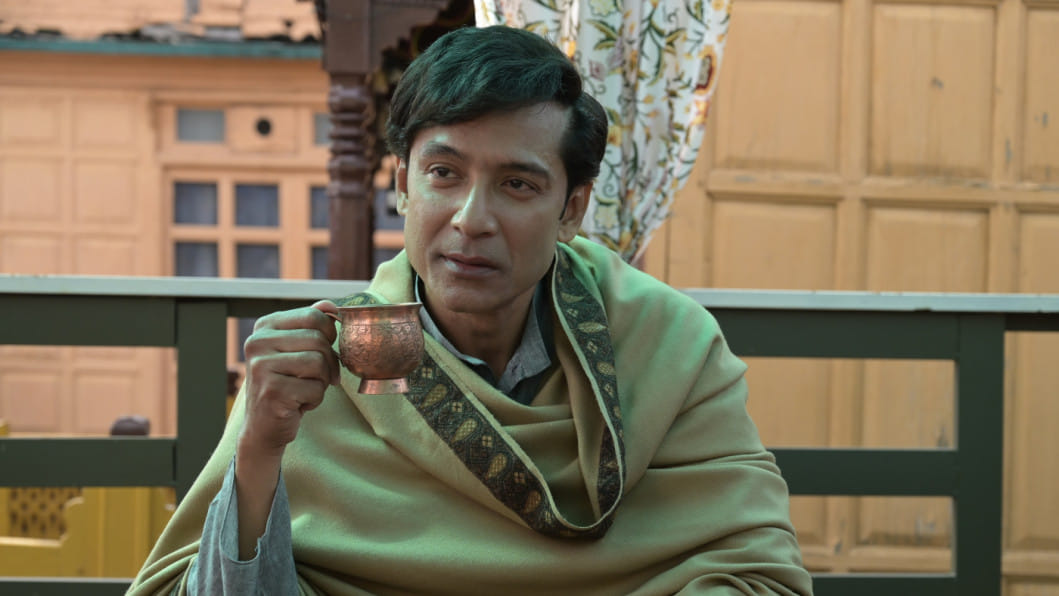
The actor has made a significant influence with his portrayal of Feluda, the quintessential detective character who has long been a benchmark in mystery storytelling. Inspired by Satyajit Ray's iconic creation, he brings the beloved sleuth to life in Srijit Mukherji's Hoichoi series "Feludar Goyendagiri", which has been running since 2022 and has produced two seasons to date. His performance adds a fresh yet faithful touch to the legendary investigator, keeping audiences captivated with every case.
Despite concerns that detective stories may be losing their charm, the numbers tell a different story. Tota informed that the latest season "Bhushorgo Bhoyongkor" released on December 20, 2024, became the most-viewed Bangla OTT series on Hoichoi last year, among the detective series across the world. "Detective stories will always have a place if they are well-crafted," Tota observes. "That said, as an actor, I have been very careful. I have been offered many detective roles, but I have also made myself clear that as long as I am playing Feluda, I am not going to take any other detective roles."
From his experience of donning the role of Romit Sen, the journalist, in the series "Nikhoj 2" released in January 10, 2025, he feels strongly about the growing challenges journalists face worldwide. "Journalism is becoming increasingly difficult, particularly for those who stand by the truth," he says. "Neutral journalists now face not just resistance but life threats, as we have seen in the series. However, the real question is—are we creating an environment where honest journalists can speak fearlessly? Or are we shutting them down? More and more, people only want to read what aligns with their views, making the job of a journalist even harder. But one thing remains certain—fearless and neutral journalists are the greatest heroes of society. The day their voices are silenced will be the day society itself begins to collapse."
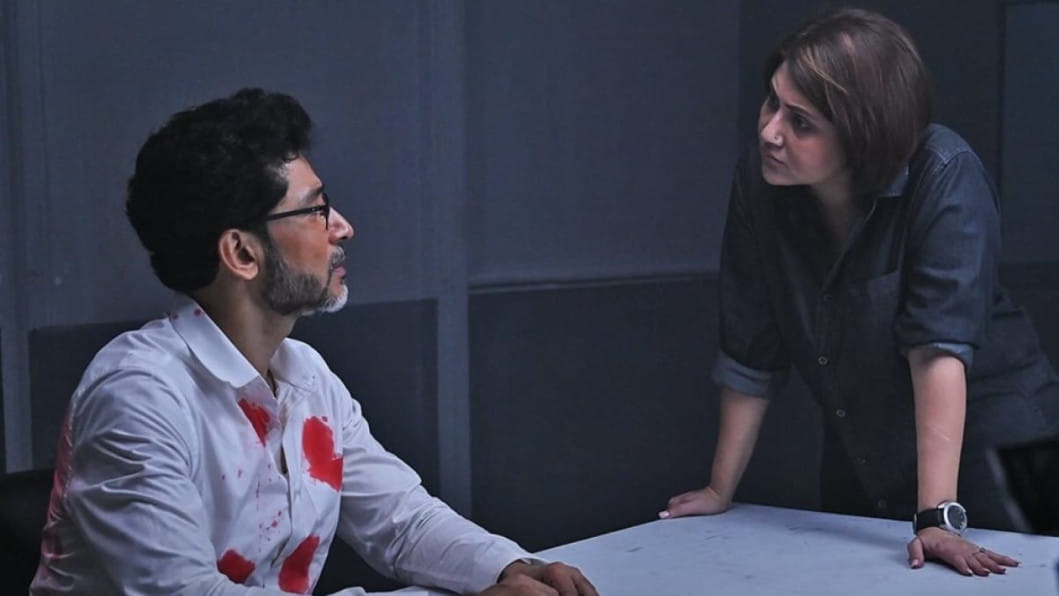
Tota was initially set to be part of "Gulmohar", a Bangladeshi project directed by Syed Ahmed Shawki, but things didn't work out. There were talks that the actor refused the proposal due to a tax-related issue. "There was a misrepresentation of the situation, and I want to clarify that it wasn't a tax-related issue. It was a process-oriented complication. Also, I would admit that at that time I was doing 'Black Warrant', so we had scheduling issues as well," he says.
"Artistes from both countries are used to working in a certain way and art should be true to its essence—it cannot be constrained by excessive formalities. However, the bureaucratic processes make things unnecessarily complex, and I urge the concerned to simplify the process so that we can have more collaborations. he argues.

Tota makes a powerful statement— "Those who create policies around artistic collaborations should be people from the arts, not bureaucrats. Only artistes truly understand the value of artistic exchange. The focus should be on facilitating creativity, not restricting it."
While not being able to work in "Gulmohar" also saddened him, he expresses deep admiration for Shawki. "He is sharp, intelligent, and brilliant. I was eager to work with him, not just because he is one of my favourite directors, but also because I deeply respect him as a person. The story of 'Gulmohar' captivated me, and I genuinely wanted to be part of it. However, for such cross-border collaborations to happen more smoothly, the process needs to be simplified."
Tota dreams of working in Bangladesh and collaborating with its filmmakers and actors. "Both our countries have immensely talented artistes. Why should bureaucratic hurdles stand in the way? Artistes have always been free-spirited, and complicating these exchanges only restricts creativity. We share the same language, culture, artistic sensibilities—our collaboration should be seamless."

He fondly recalls working with Jaya Ahsan in "Aborto" (2013), her debut film in Tollywood and, more recently, with Apurba in "Chaalchitro". "Bangladesh has incredible actors, directors, and writers. We should work together more often, and we should have more adaptations from the literature of that part as well. It has been a long-time dream to work in a Bangladeshi project," he concludes with hope to be a part of a Bangladeshi production quite soon.

 For all latest news, follow The Daily Star's Google News channel.
For all latest news, follow The Daily Star's Google News channel. 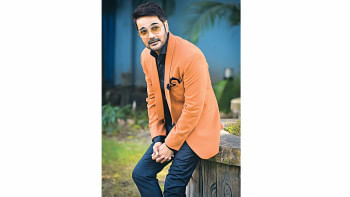







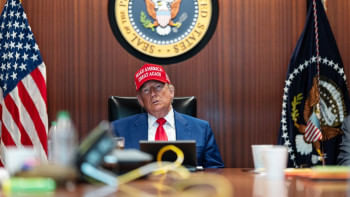
Comments